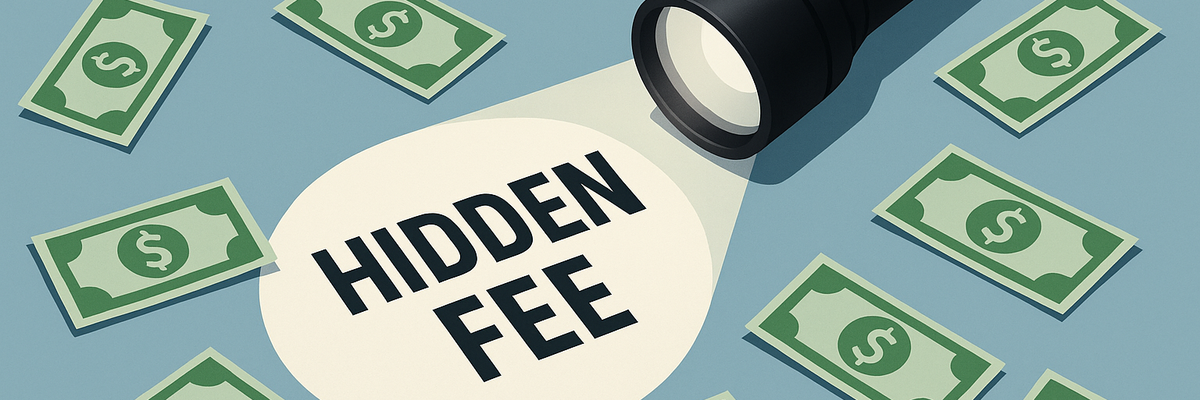Watch Out for These 4 Hidden Fees Lurking in Personal Loan Offers

Right now, the average personal loan interest rate is 12.65%, according to Bankrate. But that's just the interest rate -- the total cost of a loan is a different story.
Hidden fees can quietly add hundreds of dollars to your loan. Maybe even thousands.
Whether you're consolidating credit card debt or covering a home project, it's really important to understand all the potential fees involved before you sign on the dotted line.
1. Origination fee -- don't assume zero is better
Origination fees are common with personal loans. They're a one-time cost for processing and finalizing your loan.
Fees are usually 1% to 10% of the total loan amount, and can be deducted from your payout or rolled into the loan balance.
Here's the tricky part. A loan with a fee isn't automatically worse than one without. In some cases, paying an origination fee could get you a lower interest rate. And this could save you more money over the long run (especially on larger or longer-term loans.)
On the flip side, only focusing on scoring a $0 origination fee might result in you paying a higher interest rate. Which could cost you more overall.
The key is to run the numbers. Look at the total cost over the whole loan term, not just the monthly payment numbers.
Want help comparing real offers side by side? Check out our expert-ranked list of the best personal loans for 2025 to find the right fit for your budget.
2. Late payment fee -- worse than just being behind
Late fees are a penalty for missing your due date. But each lender deals with them a little differently.
For example, some lenders don't offer a grace period. One missed payment could trigger a flat fee (often $25 to $40), or a percentage of the overdue amount.
And some lenders will report late payments to credit bureaus really quickly. This can damage your credit score after even just a single accidental late payment.
Pro tip: A good practice is to set up autopay. Most legit lenders offer this option, and some might even give you a discount for setting it up!
3. Prepayment penalty: punished for paying early
Paying off your loan early should be a good thing, right? Sadly, not all lenders see it that way and will charge you a prepayment penalty if you pay off your loan ahead of schedule.
This could be a simple flat fee, or a percentage of your remaining balance.
To avoid fees like this, read the loan terms and look for a line that says "no prepayment penalty." If it's not there, ask directly or see if you can negotiate it to be put in.
4. Payment processing fee: sneaky, recurring, and avoidable
This one's lesser known, but still annoying.
Some lenders charge a processing fee if you don't use their preferred payment method. For example, paying by check or phone may cost $5 to $15 per payment.
Here's what to look for in the fine print: "Convenience fee," "Payment processing fee," or "Third-party fee" for non-digital payments.
Using ACH transfers or autopay through a bank account is usually the best way to avoid these silly fees.
Compare the full picture
When you're shopping for personal loans, don't solely focus on the interest rate or avoiding specific fees. It's better to understand and compare the total cost of loans from start to finish.
Looking for a personal loan with fair terms and no surprise fees? Compare top-rated lenders here and find one that fits your budget.
Our Research Expert
Motley Fool Stock Disclosures
The Motley Fool has a disclosure policy.


